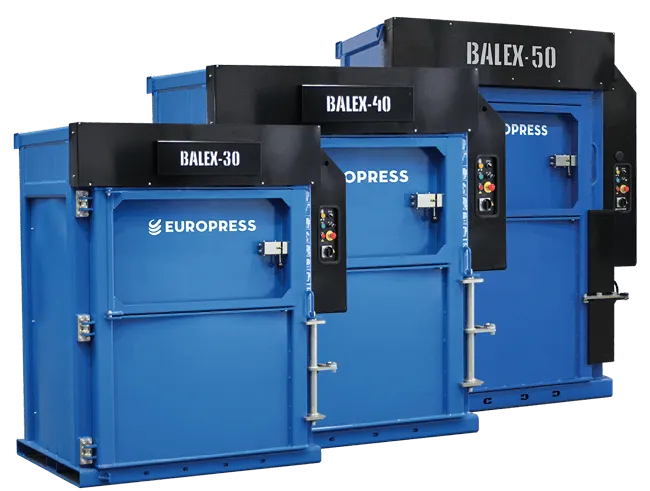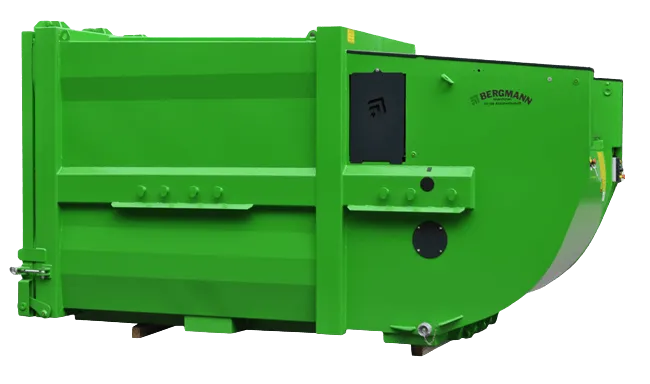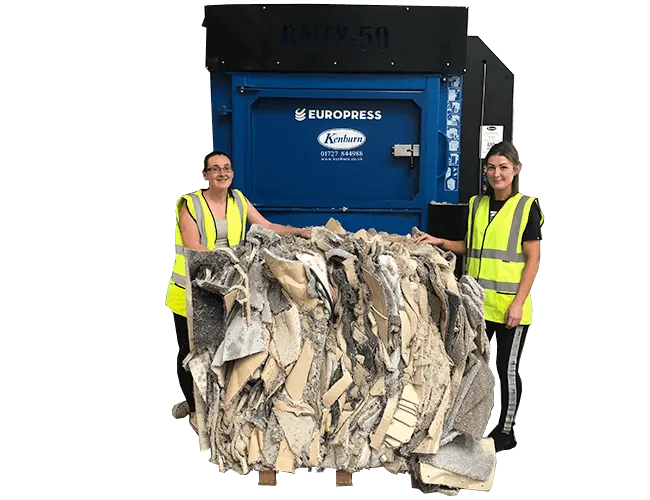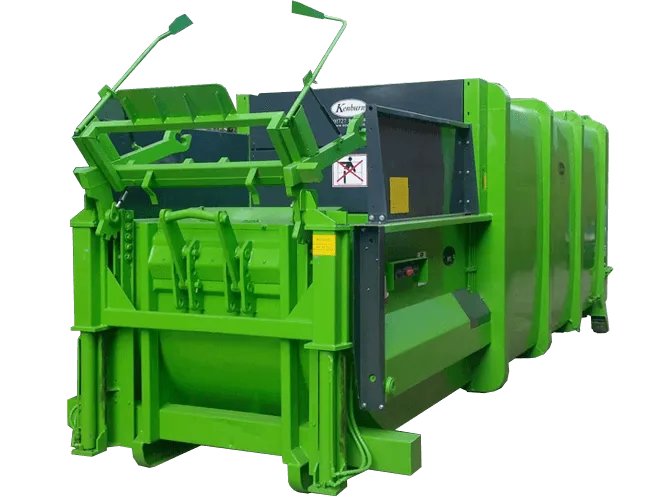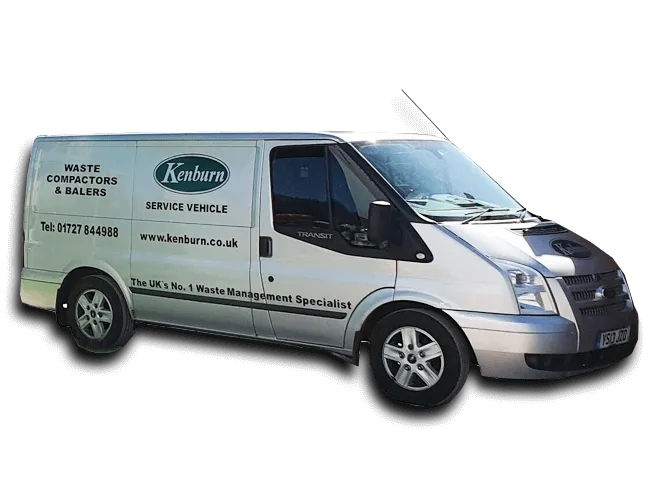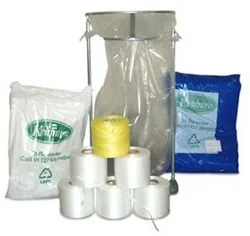 As the debate around plastic use continues to be topical and the need to reduce the UK’s dependence on single use plastics is well documented, it’s now more crucial than ever to recycle as much as possible of the 4.9 million tonnes of plastic waste the country generates each year. Sadly, much of the plastic waste that is produced currently ends up in landfill, is exported overseas, or used as a fuel for “energy from waste” plants.
As the debate around plastic use continues to be topical and the need to reduce the UK’s dependence on single use plastics is well documented, it’s now more crucial than ever to recycle as much as possible of the 4.9 million tonnes of plastic waste the country generates each year. Sadly, much of the plastic waste that is produced currently ends up in landfill, is exported overseas, or used as a fuel for “energy from waste” plants.
The technology for recycling plastic waste exists and is constantly evolving, but we need to be able to segregate our plastic waste from our general waste in order to maximise the recycling rates. This is where installing a baling machine for plastic waste can benefit companies of all sizes, but which baling machine is right for your business?
Segregating plastic waste can prove complicated and time-consuming to cope with, as any business that produces large quantities of it can relate to, so whether you rent or buy, investing in a baler is the obvious choice for streamlining waste disposal and really getting a handle on your waste plastics. What’s more, dividing your waste into separate streams can boost your ability to generate revenue for materials you currently pay to have taken away.
This guide takes a look at baling machines as a solution for soft plastic waste disposal. We cover what exactly plastic balers are, how they work and their advantages over alternative options. Most crucially, we explain exactly how to go about choosing the right baler for your business – after all, not every baler will be capable of handling the plastics you need to dispose of.
What is a plastic baler?
Waste balers are machines that compact waste. Therefore, a plastic baler is a baler that’s capable of processing most types of plastic. The function of a plastic baling machine is to convert plastic waste into compressed, recyclable blocks, Typically on a compaction ratio of 8:1 compared to loose, some balers are material-specific, but all the Balex baling machines supplied by Kenburn have two pressure settings, one for plastic the other for cardboard.
There are various types of plastic, so finding the baler that works for the types of plastic waste produced by your company is vital as revenues vary dependant on the type of plastic waste compacted, which is why Kenburn offer free of charge no obligation site surveys to analyse the types and volumes of plastic waste produced and offer guidance on projected revenues.
How do plastic balers work?
Plastic balers contain sophisticated hydraulic systems, designed to process waste as efficiently as possible. This is how the baling process works:
- Baling wire or strapping tape is fed through the back of the machine and along the base.
- When the top baler door is opened, the plastic waste can be loaded into the baler.
- The hydraulic ram crushes the contents of the chamber under high pressure.
- The loading process is repeated
- A “full light” comes on when the bale is ready for tying.
- The baling wire or strapping tape is used to secure the newly-compacted blocks then the blocks are ejected onto a pallet.
Waste balers of this kind are available in vertical and horizontal configurations. This directionality refers to the way the hydraulic arm compresses the waste. Kenburn’s range of vertical balers can produce bales of up to 600kg, while our horizontal balers can produce bales of over 1,000kg.
Kenburn are the sole UK supplier for the Europress Balex range of vertical baling machines, which due to their reliability and longevity come with a unique full parts and labour warranty for two years.
There are four models in the range with compaction forces ranging from 10-50 tonnes depending on the types and volumes of plastic waste generated.
As well as the two pressure settings, the Balex range of balers also have the option to adjust the compaction cycle motion to suit the type of plastic waste being baled. Thanks to the SMART technology, the Balex balers operate intelligently and interact with the operator. The baler can also be accessed by our engineers which enables them to diagnose faults remotely and change settings when for example the bale size or weight needs adjusting, saving time and money on the cost of a call out.
When large volumes of plastic waste are being generated there’s also an option for a horizontal baling machine which typically is fed using a hopper/chute or conveyor.
Benefits of a plastic baler
The advantages to a business of installing a plastic baler are mainly to do with improving the efficiency of recycling operations. These include:
- Cost savings: Turns the net negative of removing loose waste into a net positive. It removes the need to pay for skip hire and landfill tax, and takes fewer deliveries to remove the waste.
- Storage: The dense, secured plastic blocks produced by a baler makes waste smaller and far more efficient to store and stack.
- Ease of transport: Smaller and more stackable waste is far easier to load and unload for transit. Ultimately, this increases the volume of recycled waste companies can sell and the rebates they bring in from this activity. You won’t be paying for your waste collectors to take away fresh air!
- Capacity: Businesses can churn through far more plastic waste than by simply storing it uncompressed. This saves space, making room for other equipment.
- Cross-contamination: Government regulations on contamination levels in recycling are very strict – waste that is mixed with non-recyclable materials can easily be condemned. Waste baling machines remove this risk entirely, allowing businesses to sell their recycled plastic at a higher price to recycling companies.
- Sustainability: Balers make recycling plastic a more straightforward and profitable prospect, meaning businesses benefit with a sustainable image as well as a better return on investment.
How to choose the right plastic baler
There are a large number of considerations for a business when they come to select the perfect plastic baler for them. Here are some of the key ones:
Volume of waste
Balers can be bought at differing capacity levels. It’s important to carry out an audit of how much plastic waste you want to process, and think about how much you might be processing over the life of the baler. As a general rule, most volumes of waste can be handled by a vertical baler, while the largest volumes will require a horizontal baler.
Types of plastic
Just as different types of plastic are accepted by different recycling companies, certain balers will only process certain types of plastic. Some of the types of plastic your baler may need to process include:
- Polyvinyl chloride (PVC) – e.g. wire insulation
- High density polyethylene (HDPE) – e.g. plastic milk bottles
- Low-density polyethylene (LDPE) – e.g. long-life shopping bags
- Polyethylene terephthalate (PET) – e.g. fizzy drinks bottles
- Polypropylene (PP) – e.g. ready meal food trays
A baler is a powerful and efficient machine and, while many can process multiple types of plastic, it’s vital to check that the model you opt for is designed to handle what you’ll be putting into it. Additional care should be taken when baling all highly expansive materials, including soft plastics and it is imperative that health & safety risks are fully assessed and managed by the user of the baler.
Space
Both in terms of storage room and room on the factory or warehouse floor, space is a key consideration. While your business may have the capacity to produce a given amount of baled waste, this is only viable if it can all be easily stored. Similarly, it’s vital to think about whether operations can continue properly around the baler once it’s installed. While balers tend to be more space-efficient than waste compactors, this will be a consideration for businesses with smaller premises.
Plastic balers can allow you to vastly improve your waste management and recycling processes. They are durable, long-lasting and provide a quick and sizable return on investment once installed. Perhaps most usefully of all, companies of all sizes can benefit from plastic balers; there are a vast number of options catering for different plastics, capacity needs and types of business.
To find out more about what a plastic baler could do for you, why not contact us or call Kenburn Sales on 01727 844988.

